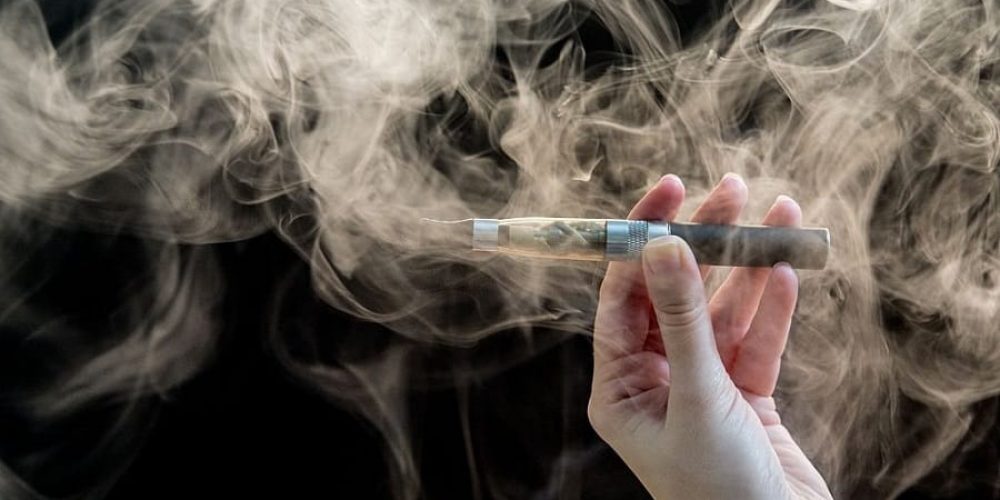Vaping may have originated as a way to create a less harmful way to enjoy smoking. In fact, one of the first iterations of a commercial cigarette was created by a scientist along with his physician. However, reality has showcased a different story.
For years, there have been numerous claims by individuals with serious health conditions as a result of vaping. This has included hospitalizations, long-term illnesses, and even death. And when it comes to minors, the dangers are increased by the fact that they are more prone to become addicted. This begs the question: can product liability laws hold vaping vendors accountable for these harms?
What is Vaping?
Vaping consists of using a handheld device to heat liquids with flavorings. Users can purchase liquids with nicotine, and as the liquid is turned into vapor, they inhale it through a mouthpiece.
The reason why vaping may seem like a safer choice is that the liquids contain only a fraction of the nicotine that is present in traditional cigarettes. You have also likely seen people vaping in numerous settings; and while the vapor is visible, an advantage to others nearby is not having to smell secondhand smoke. However, the practice still poses significant health risks.
Vaping in Teenagers
Within the context of teenage use, vaping poses even higher health risks. This is because, during this age range, the brain is still developing — it continues to do so until an individual’s early twenties.
There is a process in the brain called synapses when brain cells communicate with each other. These messages occur in milliseconds. It is so fast that it may seem like the signals sent between cells happen simultaneously with the actions they cause. For example, if you slip and you immediately reach out your arms to break the fall. You do not have to stop and think about it.
Synapses are also responsible for a person’s impulse control, ability to pay attention, learning information and new behaviors, and decision making. Since the brain is still developing during adolescence, synapses occur a lot faster in their brain than in the brain of adults.
Nicotine affects the way synapses form. Therefore, it interferes with all of the cognitive abilities mentioned above. And because the brain creates synapses a lot faster in teenagers, they are more likely to become addicted (a form of learning) than adults.
In addition, vaping includes substances that may cause long-term damage to the lungs. This is because, in addition to nicotine, they can contain heavy metals, volatile organic compounds, and noxious chemicals like diacetyl — which has been linked to toxicity.
Florida Senate Bill 1080
In October 2021, Florida lawmakers passed Senate Bill 1080, raising the legal age to purchase tobacco and nicotine products from 18 to 21. In addition, such products can’t be sold within 1,000 feet of any schools during specified hours.
In that same month, the U.S. Food and Drug Administration (FDA) announced the authorization of marketing of three new tobacco products, including e-cigarettes. This was done under the guise of good news: Doing so ensures FDA evaluation and approval of these devices.
The director of the FDA’s Center for Tobacco Products also highlighted how transitioning to e-cigarettes may be beneficial to adult smokers who want to reduce their exposure to nicotine.
This law places a hurdle for teenagers who want to purchase e-cigarettes. However, as has been the case with fake IDs since the beginning of time, it will hardly prevent underage vaping in its entirety. In addition, substantial harm has already been caused to teens who have been vaping before the age revision.
Product Liability Issues
The term product liability refers to holding manufacturers, vendors, and/or distributors accountable for placing either defective or dangerous products in the stream of commerce.
There are nuances within product liability cases. Factors that come into play include:
- Breach of warranty (express, implied, or fitness for a particular purpose)
- Strict liability (for items that are so inherently dangerous, liability is imposed for injuries)
- Negligence (the defendant should have known of the danger, based on circumstances)
When it comes to vape, there are already several product liability claims against e-cigarette manufacturers.
A study conducted by Stanford University determined that during the first six months on the market, one of the biggest e-cigarette manufacturers in the United States, JUUL Labs, used only social media posts, hashtags, email campaigns, and brand ambassadors to promote their products to younger consumers. And apparently, such marketing tactics were effective.
One relatively recent claim is from a young man in New Jersey, who blames the defendant, JUUL Labs, Inc., for his nicotine addiction, which has led to hospitalization due to serious health problems.
In the lawsuit, Plaintiff claims that JUUL’s e-cigarettes contain three times more nicotine than necessary to satisfy the cravings of an adult smoker. Yet, JUUL allegedly heavily marketed on social media with images that appealed to underage consumers.
Another case was filed in California by a mother, on behalf of her deceased son, claiming that he became addicted to JUUL’s nicotine products when he was 15 years of age. This resulted in three hospitalizations due to breathing issues. Eventually, her son passed away in 2018 from such health problems.
These are only two examples of many lawsuits filed against JUUL that are still being litigated. Since product liability laws vary from state to state, they will likely be considered differently by the Courts. However, factors they will likely take into account include:
- The minors’ medical history
- Whether they used other nicotine products
- Expert opinion on whether JUUL committed negligence and/or regulatory violations
Each case will be considered on a case-by-case basis, and it will be interesting to see the precedents they set moving forward with the way e-cigarette companies market their products. One thing is for certain. The ramifications of underage vaping seem to be serious, and it behooves parents to keep tabs on what their teenagers are doing in their spare time.




Comments 0